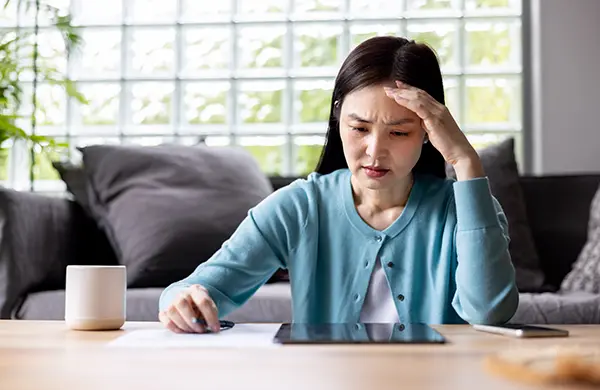Confused About Quarterly Tax Payments?
We can clear things up!

Who Has To Make Quarterly Tax Payments?
If you are an independent contractor, freelancer, or self-employed, you’ll likely need to make quarterly tax payments – also known as estimated tax payments. This is especially true if you expect to owe at least $1,000 in taxes for the year. These payments cover both your income taxes and self-employment taxes.
You may also be required to make quarterly payments if you receive any of the following income:
- Alimony (for agreements executed before 2019)
- Capital gains (from sales of stocks and other assets)
- Prizes or awards
- Dividends
- Interest
You can estimate your quarterly tax payments using the worksheet provided in Form 1040-ES or work with a tax professional to ensure you are sending the correct amount. A total of four (4) equal payments should be made throughout the year.
Quarterly Tax Payment Deadlines
Generally, quarterly estimated tax payments are due on the following dates:
- April 15
- June 15
- September 15
- January 15 (following year)
If the 15th falls on a weekend or a holiday, however, the deadline is bumped into the next business day.
What Happens If You Miss Your Quarterly Tax Payment?
Failing to pay your quarterly taxes by the due date will result in penalties and interest fees. The IRS will assess an underpayment penalty even if you are just a few days late. This is 0.5% of the amount owed for each partial or full month you don’t pay. Additionally, you’ll be charged interest (varies by quarter) on the outstanding balance. The total amount in penalty fees, however, cannot exceed 25% of the original balance owed.
The best thing to do is pay as much as you can, as soon as you can. Then, continue to send in payments whenever possible. This will help keep your penalties and interest to a minimum. Do not, however, make the mistake of thinking you can simply pay double the following quarter. Each is treated independently, so it won’t erase any penalties and interest fees for the missed quarter.
Options For Late Quarterly Payments & Penalties
If you have past due quarterly tax payments or penalties that are piling up, you do have a few options to address your situation.

Request a penalty waiver
If your business or self-employment income is inconsistent throughout the year due to seasonality or other reasons, you can use the annualized income installment method to avoid underpayment penalties. Additionally, the IRS will generally waive penalty fees if you miss your quarterly payment because of a family death, medical emergency, or other reasonable cause.
Apply for a payment plan
In situations where you are unable to pay your outstanding tax balance, it is possible to apply for a payment plan. This will allow you to pay off the amount over several months (or years) without the fear of escalated IRS collection actions. Another added benefit – the underpayment penalty is cut in half.

Whatever you do, don’t ignore your unpaid quarterly taxes. Penalties and interest fees can quickly add to your balance. If you continue to ignore payment requests, it can also lead to the IRS placing liens and levies against your business.